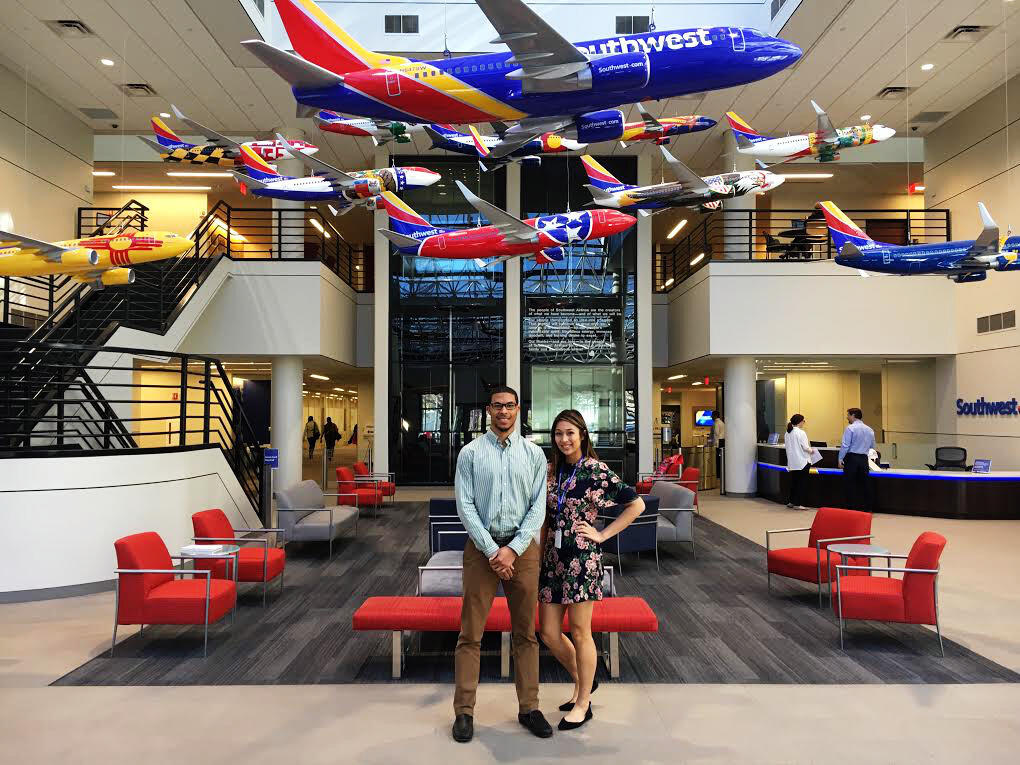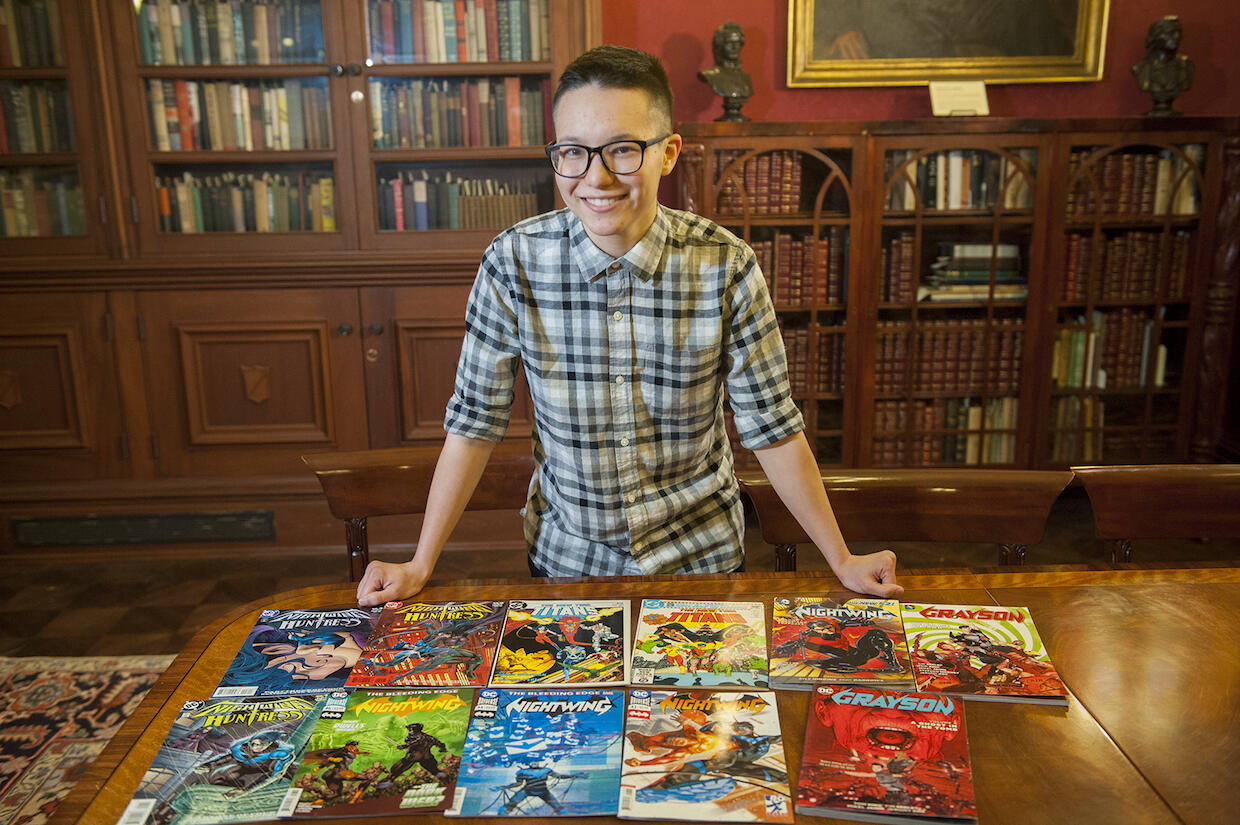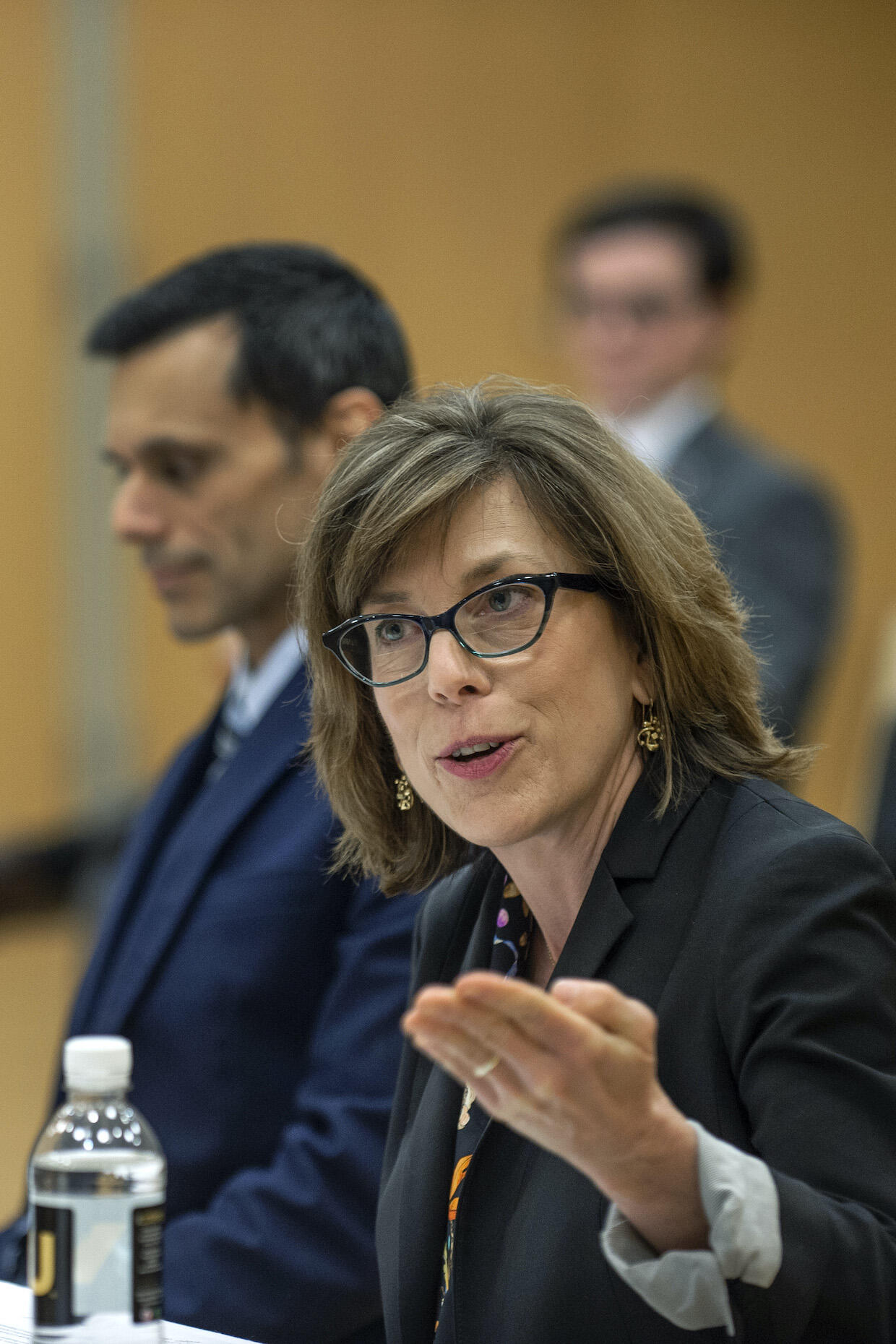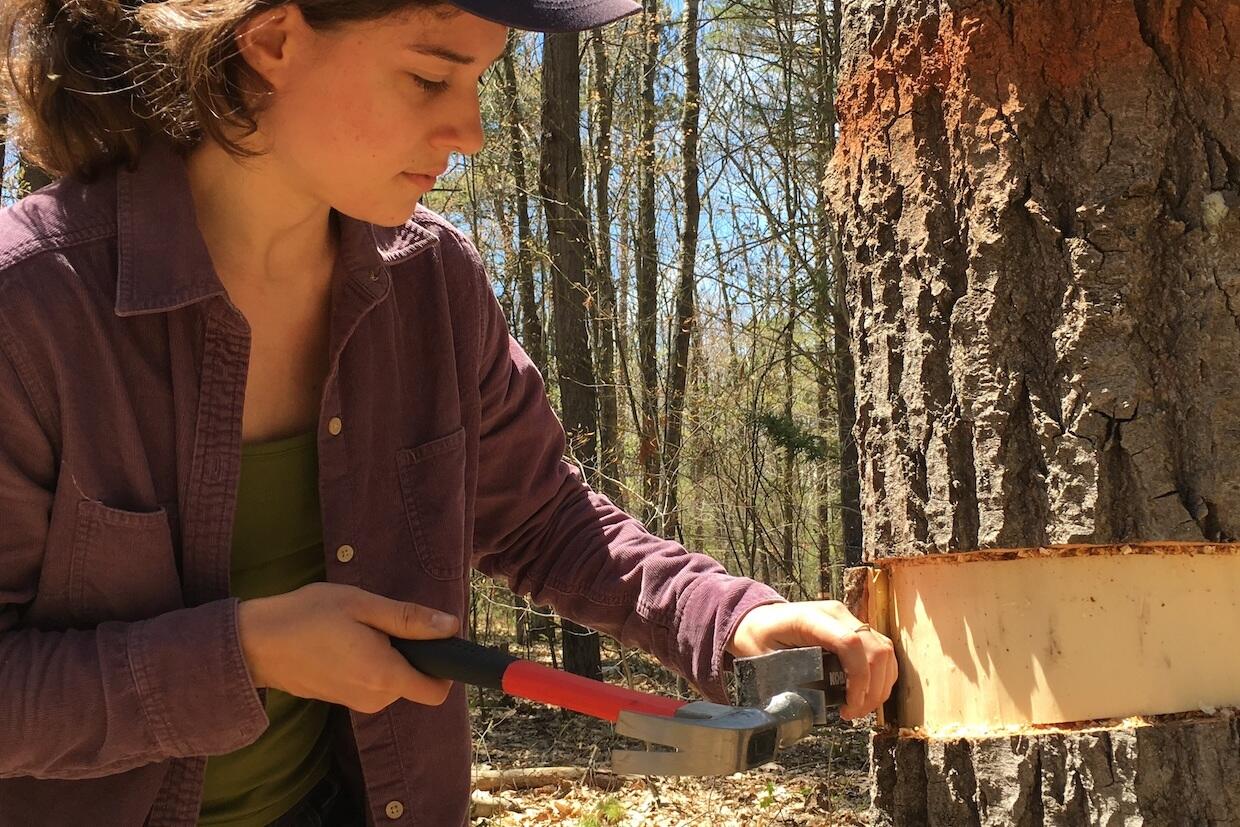
Dec. 1, 2020
Experiential learning, long a key piece of a VCU education, is as important as ever
The university has a long history of hands-on learning, and a new digital resource will help students identify new opportunities and showcase their skills and achievements outside the classroom.
Share this story
Mary Boyes, an associate professor in the Honors College at Virginia Commonwealth University, leans on her own background for some perspective when teaching and interacting with students. While in college, she had considered a career at a large corporation, but an internship experience sent her in a different direction.
She knows that students often have a particular career in mind when entering college, but real-world experiences can change that.
“I have had many, many students who thought they were just going to go to university for an undergraduate degree, and I also have had many students whose families were pushing them into nursing or medical school,” Boyes said. “But once they started doing research projects and got published or went to conferences, they realized they wanted to go into research as opposed to being an M.D.”
She and others at VCU understand the benefits of experiential learning, where students apply what they’ve been taught in the classroom to solve real-world challenges and reflect on the experience. In the process, students gain a deeper understanding of underlying principles. Just as important, they have an opportunity to explore their own strengths, to make decisions and problem-solve in an unscripted environment and to regroup when something does not go as planned.
This might be an internship, but it could also be research in a lab, work as a student leader or participation in an entrepreneur academy. The experience is often more active and involves two-way communication when compared to the traditional classroom. For many students, experiential learning activities are a defining moment of their college experience.
Nursing student Lyndsey Highlander took a chance on such an opportunity and was amazed at what she learned. She volunteered to take part in a design sprint through the VCU da Vinci Center for Innovation where teams develop an idea for a product.
“Close to when COVID started, we were getting all these emails from the School of Nursing that told us about things we could do to help out during the pandemic,” Highlander said. “One of the emails said, ‘Expand your mind, do something different. Join the da Vinci innovation team sprint for COVID.’ I was like, oh, that sounds kind of cool.”
She was placed with a group of biology students from the College of Humanities and Sciences. The group came up with the idea of an at-home COVID-19 test. Highlander said the work was challenging because she has a very different personality from her teammates. She also brought a different perspective. The hard work paid off when their project was recognized by the Clinton Foundation earlier this fall.
“It was very unfamiliar to me, and I learned way more than I knew that I would,” Highlander said. “It was tough but creative.”

Establishing REAL
Within higher education, there is a trend toward formalizing this type of learning, as employers often decry a skills gap with recent graduates. To help facilitate that process, VCU has partnered with the Student Opportunity Center, an Alexandria, Virginia, based company, to create a centralized database of opportunities so that students can identify potential experiential learning opportunities.
The idea is not new to VCU. The university has a long history of including experiential learning in the educational process going back to the institution’s charter as well as its origins as a medical school and school of social work. But the current effort is a formal push to make experiential learning part of the student experience and create better ways of collecting data about experiential learning at the university.
VCU President Michael Rao, Ph.D., began the process of formalizing experiential learning at the university in 2016. During his annual State of the University address that year, Rao stressed the need to make experiential learning a central part of VCU’s learning environment.
In the address, Rao noted that 80% of respondents to a survey of prospective and current VCU students “valued practical experience as a key element of their college education” and he laid out a path for instituting more experiential learning.
“These experiences will become part of VCU’s overall curriculum, meaning that every student who earns a degree here will be well-regarded for their thoughtfulness and deep thinking, because they have used their education to make a mark on humanity, even before they hit the job market,” Rao said.
Rao’s address led to the establishment of the Relevant, Experiential and Applied Learning initiative, and an office, VCU REAL, dedicated to expanding and prioritizing experiential learning. Shortly after the creation of the office, the university hired Erin Webster Garrett, Ph.D., to lead the effort.
Helping underrepresented population
Historically, the central part of the college experience has been classes and test taking. While there have always been other aspects, some students, especially those from underserved backgrounds, can have a difficult time accessing college experience outside the classroom, despite the fact that they can benefit the most from the activity.

“The research is pretty clear that experiential learning is a great equalizer,” Webster Garrett said. “While it benefits all students, the greatest gains in retention and persistence to degree seem to be experienced by students from historically underserved populations such as underrepresented minority students, students who are first-in-family to attend college, and students from low-income households.”
REAL and other efforts at VCU aim to improve and enhance access to experiential learning opportunities, Webster Garrett said. A key component has been to better understand the types of activities that were already taking place at the university. When Webster Garrett came to VCU in 2018, she was able to convene a task force of subject-matter experts to look at how to leverage and document VCU’s long history of experiential learning. The group designed and conducted an audit that provided an in-depth look at VCU’s experiential learning ecosystem. In the end, the task force identified 18 dominant types of experiential learning, ranging from entrepreneurship and innovation activities to service learning and career development activities.
“It was the first step in truly seeing where students are getting experiences and at what level,” Webster Garrett said. “There’s an old saying that we count what we value, and it’s certainly true that it is difficult to improve at scale what we have not accurately measured.”
Software platform
The next step was establishing a centralized hub where students could identify experiential learning opportunities and funding sources. A committee comprised of faculty, staff and students looked at several options and decided on the Student Opportunity Center. It is an easy way for students to understand and access experiential learning opportunities that match their interests and goals.
When students log in to the platform, they confirm their profile and add their areas of interest, which are used to generate a list of potential opportunities. Students can choose local or national opportunities, as well as remote activities. They also can search by activity type, filter by areas of interest, and search by geographic location. All these help students home in on the right experience for them. Students receive emails when new opportunities that match their profiles become available.
In addition to experiential learning opportunities, the portal contains funding sources that can support students in pursuing opportunities. For many students, finding an opportunity is just the beginning; they also need a financial plan for how to participate and scholarships can be a determining factor.
The information for students is generated from various sources throughout the country that participate in the Student Opportunity Center, as well as information provided by university and Richmond community sources. The more opportunities entered into the Student Opportunity Center, Webster Garrett said, the better the chance students will find a good match. However, she emphasized that the center is not replacing systems already in place on campus. Rather, it draws information from those systems into a central warehouse so students have one place to search for information, rather than having to go to multiple offices and websites.
Many of the opportunities in the Student Opportunity Center are project-based learning that address real-world issues and require students to present their solutions to a panel of faculty, clients or experts. The opportunity to apply their skills and test what they know in an authentic context directly benefits how easily students can transition from the classroom to the workplace. It also gives them an edge when they are looking for a job, Webster Garrett said.
“When you go into a workplace and have a complex problem to solve, you have to rely on people from a variety of different backgrounds and experiences,” she said. “We have to know how to talk across disciplinary context.”

Part of the curriculum
Webster Garrett said a key part of closing experiential learning gaps is collecting information about student participation in a central location. This will allow students to create a co-curricular transcript of their activities — a running list that contains every club, research project, internship and activity participated in while at VCU. From this transcript, the university can create a verified experiential learning record that shows a potential employer not only what a student did at VCU, but what that means in terms of their real-world knowledge and abilities.
Boyes said a permanent record is important when students look for a job because employers want verifiable experience, not just something on a resume. She helps students develop resumes and CVs and finds they often omit some of their experiential learning activities. They only put jobs or formal published papers in the document. Students often have a wider range of experiences but fail to identify them.
“A co-curricular transcript automatically collects and stores that information,” Boyes said. “It’s a permanent record that validates it and makes sure the student doesn’t forget it.”
Boyes said that from her observations, experiential learning is transformative in that it thrusts students into something through “full immersion.” Highlander, the nursing student, said she was out of her comfort zone with the da Vinci Center sprint and learned a lot by working on the project. While it did not take her career in a different direction, the effort got her to experience things outside her major.
Experiential learning should be part of the college experience for that very reason, Boyes said. Students often enter college with a limited understanding of their skills and interests, and these types of opportunities take students’ lives in directions that they never imagined.
“Experiential learning helps them define who they want to be,” Boyes said.
Subscribe to VCU News
Subscribe to VCU News at newsletter.vcu.edu and receive a selection of stories, videos, photos, news clips and event listings in your inbox.









